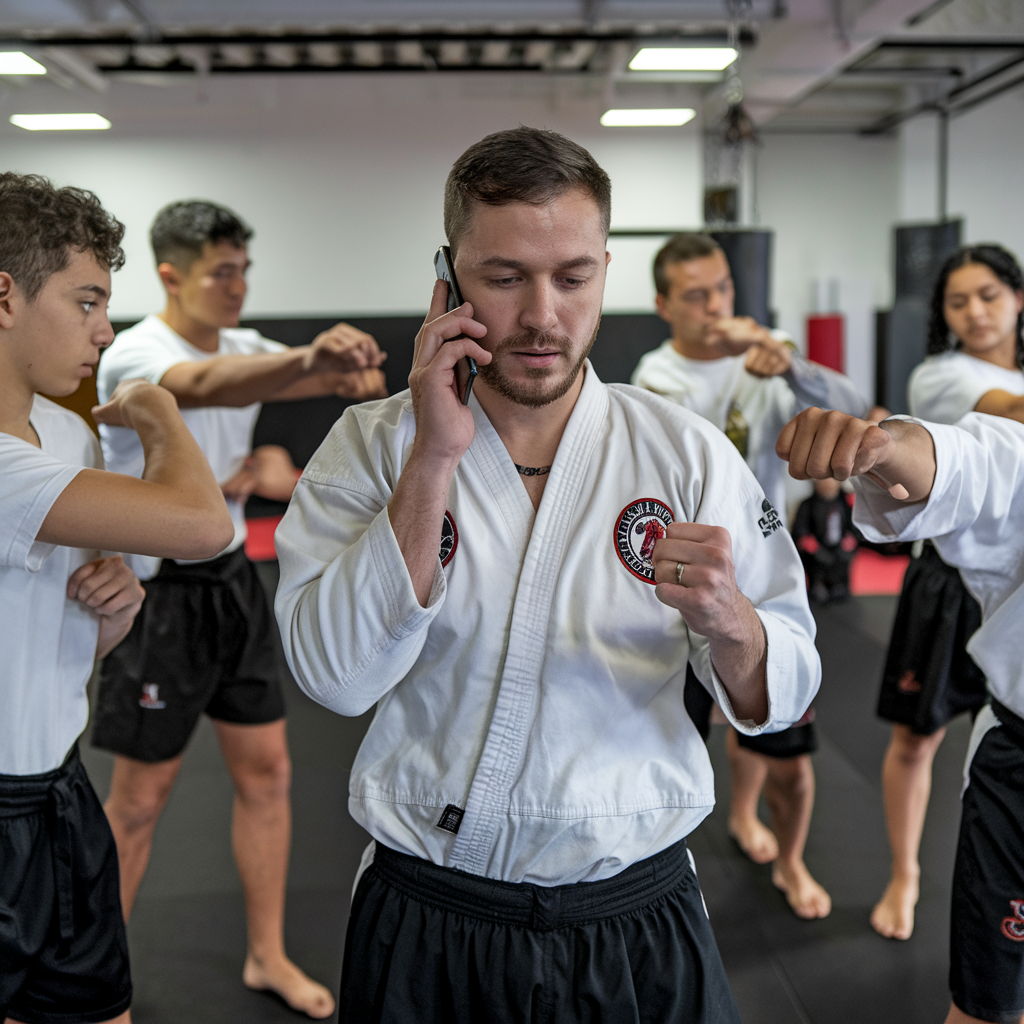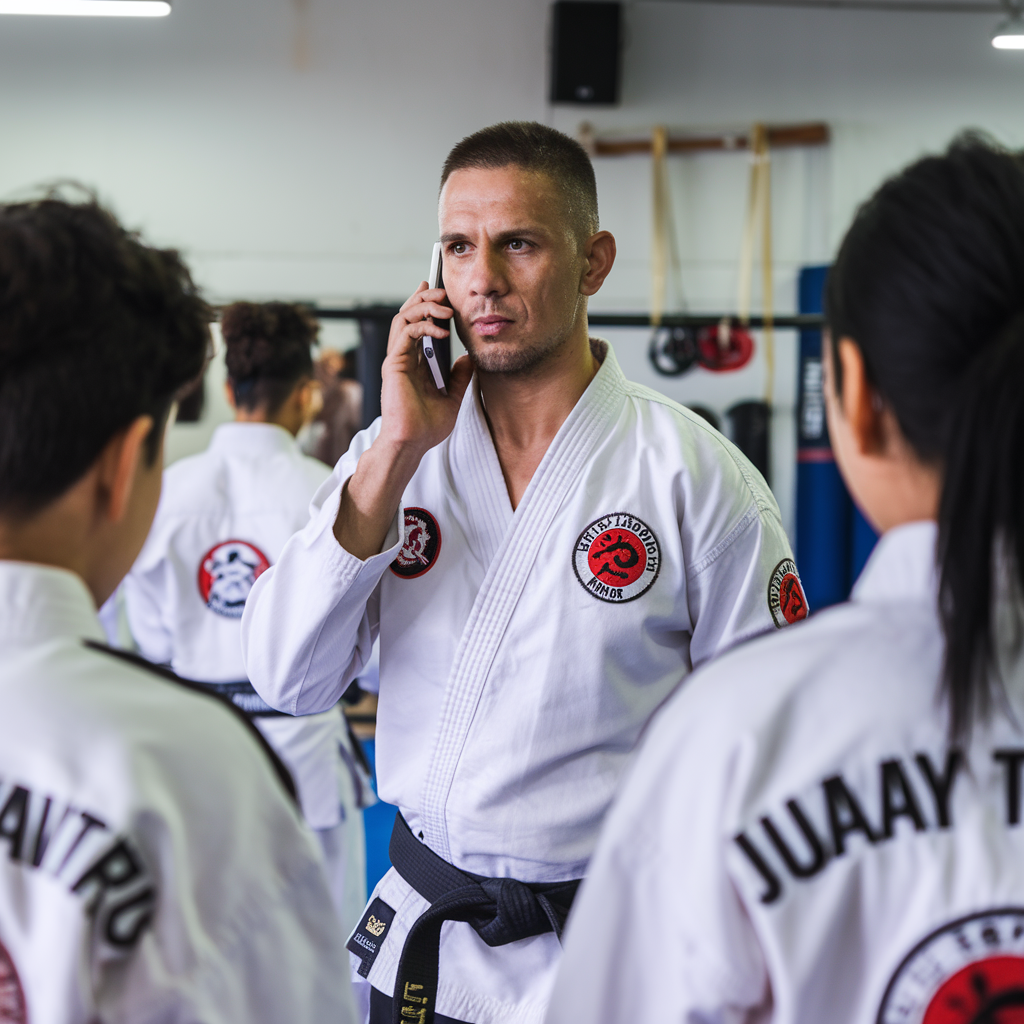
Introduction
In today’s fast-paced world, discipline is more than a virtue—it’s a necessity. Whether it’s controlling your emotions, managing time, or overcoming challenges, discipline shapes how we navigate life’s complexities. Few pursuits instill discipline as profoundly as martial arts, particularly Muay Thai and Brazilian Jiu-Jitsu (BJJ).
While these two martial arts differ in technique—Muay Thai focusing on striking and Jiu-Jitsu on grappling—both require a deep commitment to self-control, mental focus, and personal growth. The lessons learned on the mat extend far beyond physical combat, influencing every aspect of life.
This article explores how Muay Thai and Jiu-Jitsu cultivate discipline and provide practical tools to master the art of control in both combat and daily life.
Understanding Discipline in Martial Arts
Discipline in martial arts isn’t just about following rules—it’s about developing the mindset to stay focused, adaptable, and resilient under pressure. Muay Thai and Jiu-Jitsu teach physical control, mental toughness, and emotional regulation through rigorous training and constant self-reflection.
These disciplines demand consistency, humility, and patience—qualities that translate directly into personal and professional success.
Muay Thai: Control Through Precision and Power
Muay Thai, known as the “Art of Eight Limbs,” emphasizes the use of fists, elbows, knees, and shins to deliver powerful strikes. It is a demanding martial art that relies on physical endurance and mental clarity.
1. Physical Control: Mastering the Body
Muay Thai requires precise execution of techniques under intense conditions. This level of physical control is built through repetition, muscle memory, and conditioning.
How Muay Thai Develops Physical Discipline:
- Structured Training: Fighters repeat core techniques—such as the roundhouse kick—thousands of times to perfect their form.
- Body Conditioning: Muay Thai practitioners train through rigorous routines—running, shadowboxing, and heavy bag work—to build strength and endurance.
- Clinch Control: The clinch teaches fighters to manage close-range combat, requiring a balance of power and finesse.
Life Lesson: Repeated practice cultivates a disciplined work ethic, reinforcing the idea that excellence comes from consistency and effort.
2. Mental Control: Staying Focused Under Pressure
In Muay Thai, a lapse in focus can mean the difference between victory and defeat. Fighters must remain calm while assessing their opponent’s movements and delivering precise strikes.
How Muay Thai Sharpens Mental Discipline:
- Strategic Thinking: Successful fighters analyze their opponents, adjusting their tactics in real-time.
- Pain Tolerance: Enduring physical discomfort builds mental resilience and the ability to push through adversity.
- Routine and Consistency: Daily training routines teach patience and commitment.
Life Lesson: Maintaining focus under pressure is essential for achieving long-term goals, even in the face of setbacks.
Jiu-Jitsu: Control Through Technique and Patience

Brazilian Jiu-Jitsu, often called the “Gentle Art,” focuses on ground fighting, positional control, and submissions. It emphasizes leverage over strength, making it ideal for practitioners of all sizes.
1. Emotional Control: Staying Calm in Chaos
Jiu-Jitsu’s most valuable lesson is learning to remain calm under pressure. Whether you’re trapped beneath a stronger opponent or defending against a choke, panic only worsens the situation.
How Jiu-Jitsu Teaches Emotional Discipline:
- Breathing Techniques: Staying relaxed conserves energy and enhances decision-making.
- Defensive Strategy: Learning to escape bad positions requires patience and emotional control.
- Ego Management: Tapping out teaches humility and the value of learning from failure.
Life Lesson: Emotional control allows you to navigate difficult situations with clarity and poise, reducing impulsive decisions.
2. Intellectual Control: Problem-Solving Under Pressure
Jiu-Jitsu is often compared to physical chess due to its emphasis on strategy and problem-solving. Success requires understanding complex techniques and anticipating your opponent’s moves.
How Jiu-Jitsu Enhances Intellectual Discipline:
- Systematic Thinking: Practitioners develop a mental framework to solve problems step by step.
- Adaptability: Every opponent is different, requiring you to adjust and refine your techniques.
- Continuous Learning: Mastery is an ongoing process, fostering a mindset of lifelong learning.
Life Lesson: Strategic thinking and adaptability are essential for tackling life’s unpredictable challenges.
The Intersection of Muay Thai and Jiu-Jitsu: Total Control
While Muay Thai and Jiu-Jitsu focus on different combat areas, their shared values of discipline unify them. Together, they teach a comprehensive model of control that applies to all areas of life.
1. Time Management and Commitment
Both arts demand a structured training schedule. Consistency over months and years is required to progress, reinforcing time management skills.
Practical Takeaway: Prioritizing long-term goals over immediate gratification leads to sustained success.
2. Humility and Growth Mindset
In both Muay Thai and Jiu-Jitsu, there is always room for improvement. Whether being outmaneuvered on the mat or outpaced in sparring, you learn to embrace failure as part of the growth process.
Practical Takeaway: Adopting a growth mindset helps you view setbacks as learning opportunities, not roadblocks.
3. Emotional Regulation in High-Stress Situations
Training teaches you how to control your emotions during high-pressure moments. Staying calm under duress becomes second nature, enhancing how you respond to stress outside the gym.
Practical Takeaway: Emotional regulation allows for better decision-making in personal and professional conflicts.
How to Apply Martial Arts Discipline in Everyday Life
You don’t need to be a professional fighter to benefit from the lessons of Muay Thai and Jiu-Jitsu. Here are ways to integrate these principles into daily life:
- Set Clear Goals: Just like advancing through belt ranks or fight levels, set personal milestones and work consistently to achieve them.
- Embrace Routine: Create daily habits that support your objectives, from exercise to mindfulness.
- Practice Patience: Understand that mastery takes time—whether learning a new skill or advancing in your career.
- Control Your Reactions: When faced with conflict or stress, respond thoughtfully rather than reacting impulsively.
- Stay Humble: Recognize there is always more to learn, and embrace a lifelong commitment to self-improvement.
Conclusion
The discipline required to excel in Muay Thai and Jiu-Jitsu extends far beyond the martial arts arena. These arts teach you to control your body, mind, and emotions—an invaluable skillset for navigating life’s challenges.
Whether you are managing stress at work, pursuing long-term goals, or handling personal conflicts, the lessons from these disciplines equip you to remain calm, focused, and resilient.
In the end, the art of control isn’t just about mastering others—it’s about mastering yourself. Through the rigorous and rewarding practice of Muay Thai and Jiu-Jitsu, you gain the tools to thrive in all areas of life.

